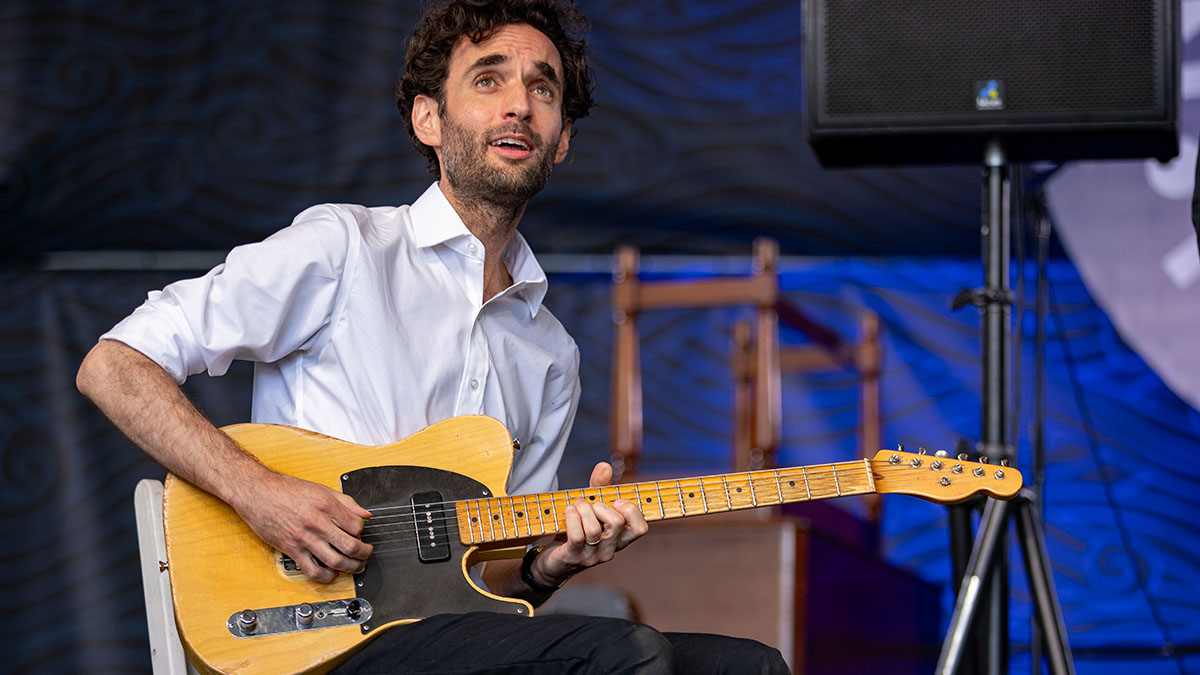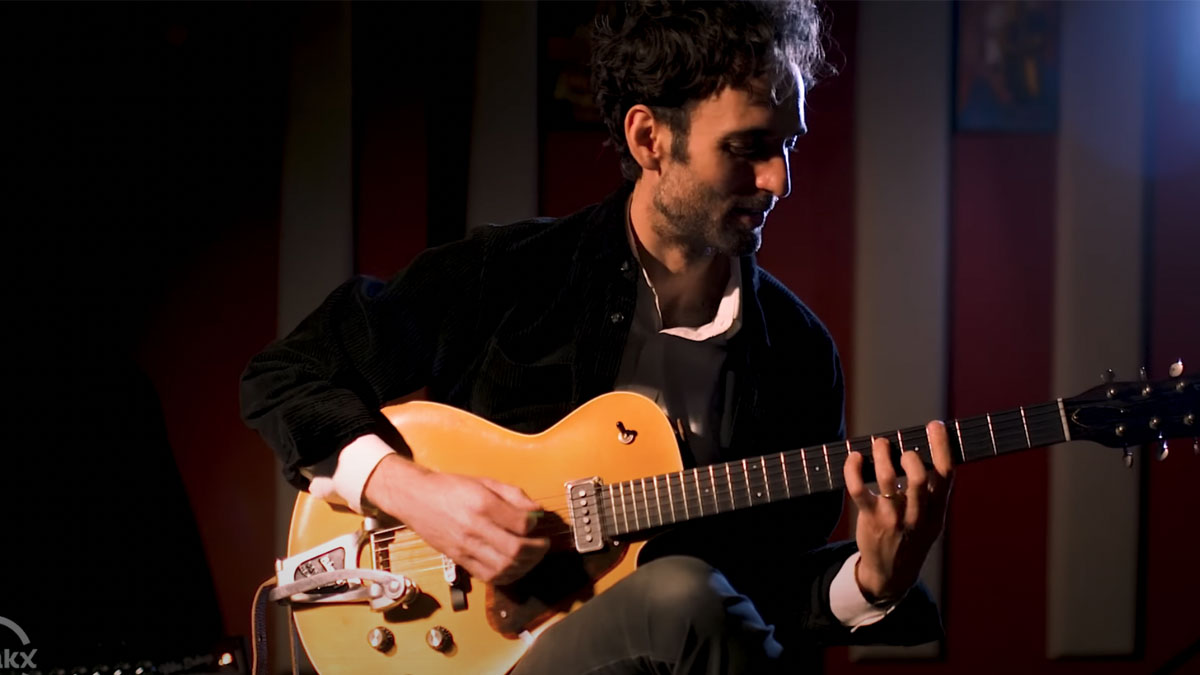“There are so many hurdles guitar players get into that are attributed to knowing 30% of the neck. Just map it out - it takes a week”: Julian Lage unlocks the secret of mastering guitar
The virtuoso guitarist explains his approach to music theory and the wider scope a little knowledge can bring

Want all the hottest music and gear news, reviews, deals, features and more, direct to your inbox? Sign up here.
You are now subscribed
Your newsletter sign-up was successful
A prodigious talent from a young age, and now renowned as one of this generation’s most skilled jazz guitar players, Julian Lage is well equipped to dispense advice on how to improve on a theoretical approach to guitar. When speaking to the Broken Record Podcast - recorded live at the Blue Note Club in New York - Lage was asked by hosts Justin Richmond and Don Was how he became such a dexterous player of both jazz and blues.
“I find great support in knowing that I'm far from the only person doing this. You know, it was here before me, and it’ll be here when I'm dead, so I'm just passing through, you know?" Lage said. “I [ultimately] wanted to be part of a creative project, and in order to do that and feel comfortable, I needed to deal with a lot of things that are really no one else's business. That's scales, that's theory and that's understanding guitar.”
Lage, whose recent twelfth album Speak to Me was met with wide acclaim from critics, went into greater detail on how his abilities developed from amateur player to virtuoso.
“[It comes down to] even knowing where the pitches are on the instrument - I've always felt like that's massively overlooked,” Julian said, “what I found though, is there are so many hurdles as guitar players we get into (I was there for a long time) that are attributed to [only] knowing 30% of the neck. That's a very simple example of kind of doing your homework. Just map it out - it takes a week.”
Julian, who once played on-stage with Carlos Santana at age 9, then went on to underline a method for dealing with progressively harder elements of learning guitar theory, orienting around simple touchstones;
“I remember, as a young person, thinking ‘despite all the things I know that I don't know - what is something I can do that I just feel I could do in my sleep. A really good example would be probably playing a C Major chord. The reason I say that is because I probably learned it really early on, and when I play it, I can talk and do it, I can breathe and play it. Now, to me, that's somewhat of a litmus test. That's a metric for what it's like to have a mastery over a little domain on the instrument.”
Lage explained that he’d progress to trying something a little less comfortable, and try to get into a zone where he felt more relaxed playing complicated parts. “I’d immediately ask ‘what has left me?’ - I can’t really breathe when I’m doing [this], I’m really anxious, my tone dipped. So, I would keep going back to the reset (that safe C Major chord), and I would keep going back to that touchstone. If you do it enough, you can get those difficult things to feel good in a way I had faith in. It’s very hard to have faith that you’re good at something if you’re not used to that ‘good’ feeling.”
Want all the hottest music and gear news, reviews, deals, features and more, direct to your inbox? Sign up here.

Lage credited his father with teaching him this relaxed way in to learning theory, “I think that's how my father looked at teaching me guitar, it’s all from him.”
To hear more of the interview, check out the full Broken Record Podcast and for more information on Julian Lage, head to his website

I'm Andy, the Music-Making Ed here at MusicRadar. My work explores both the inner-workings of how music is made, and frequently digs into the history and development of popular music.
Previously the editor of Computer Music, my career has included editing MusicTech magazine and website and writing about music-making and listening for titles such as NME, Classic Pop, Audio Media International, Guitar.com and Uncut.
When I'm not writing about music, I'm making it. I release tracks under the name ALP.
